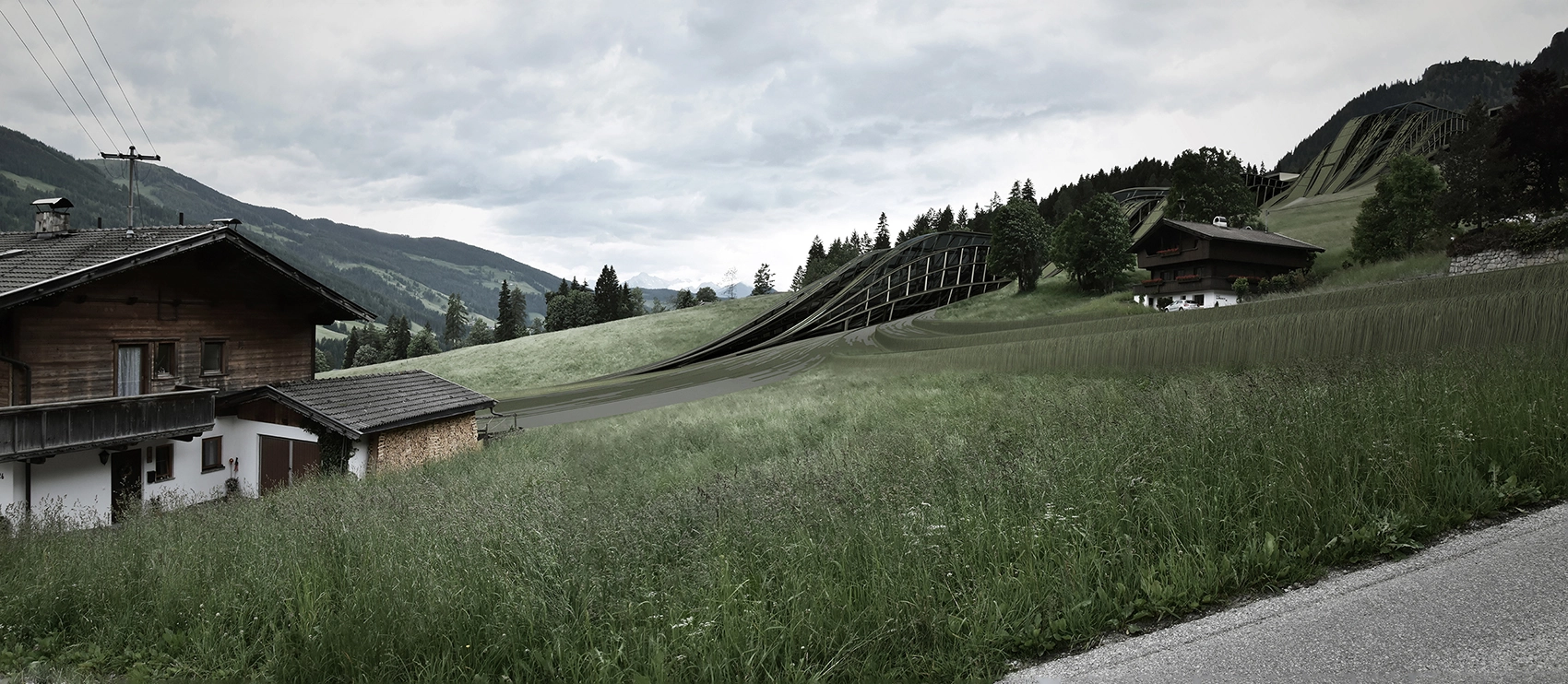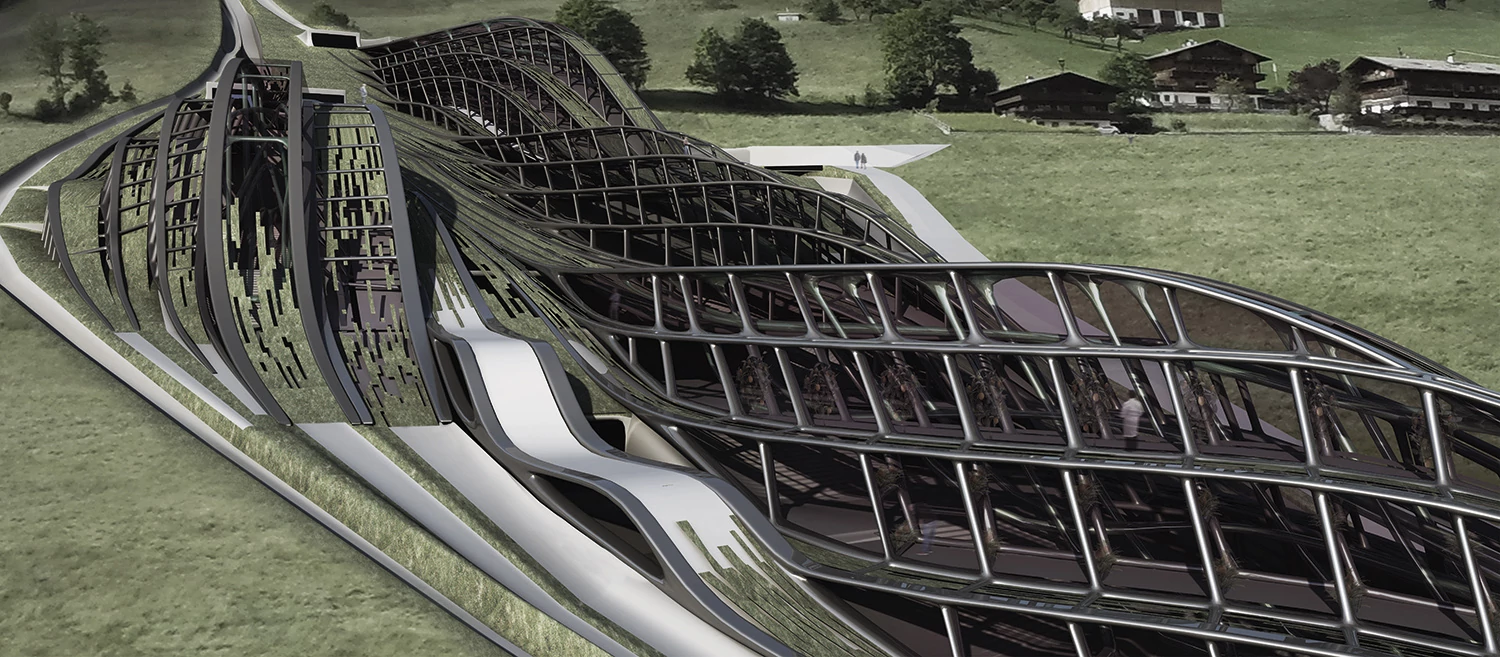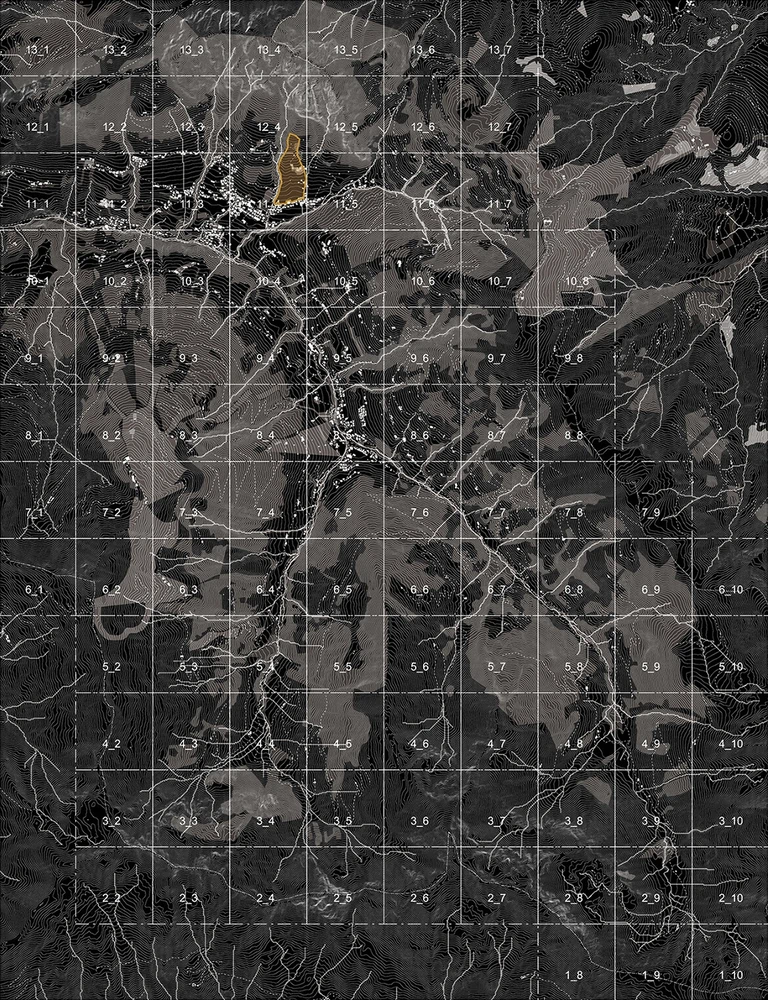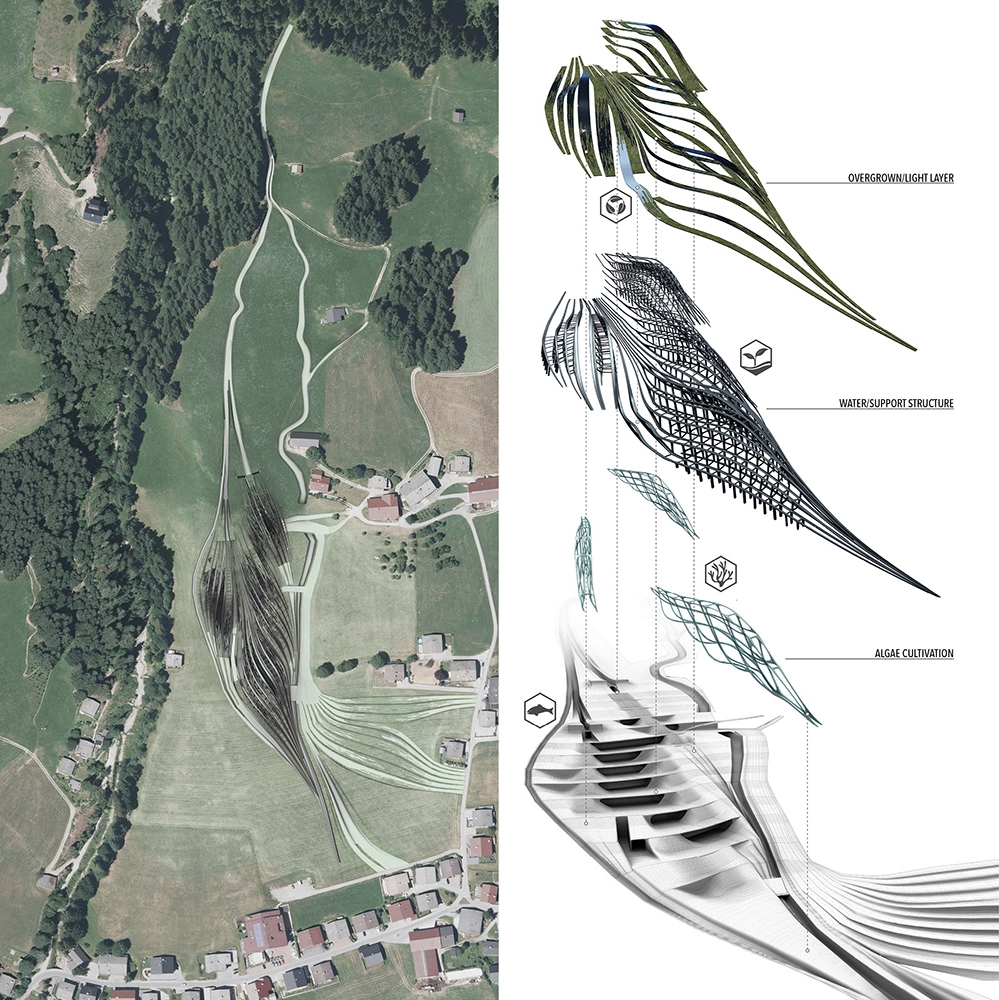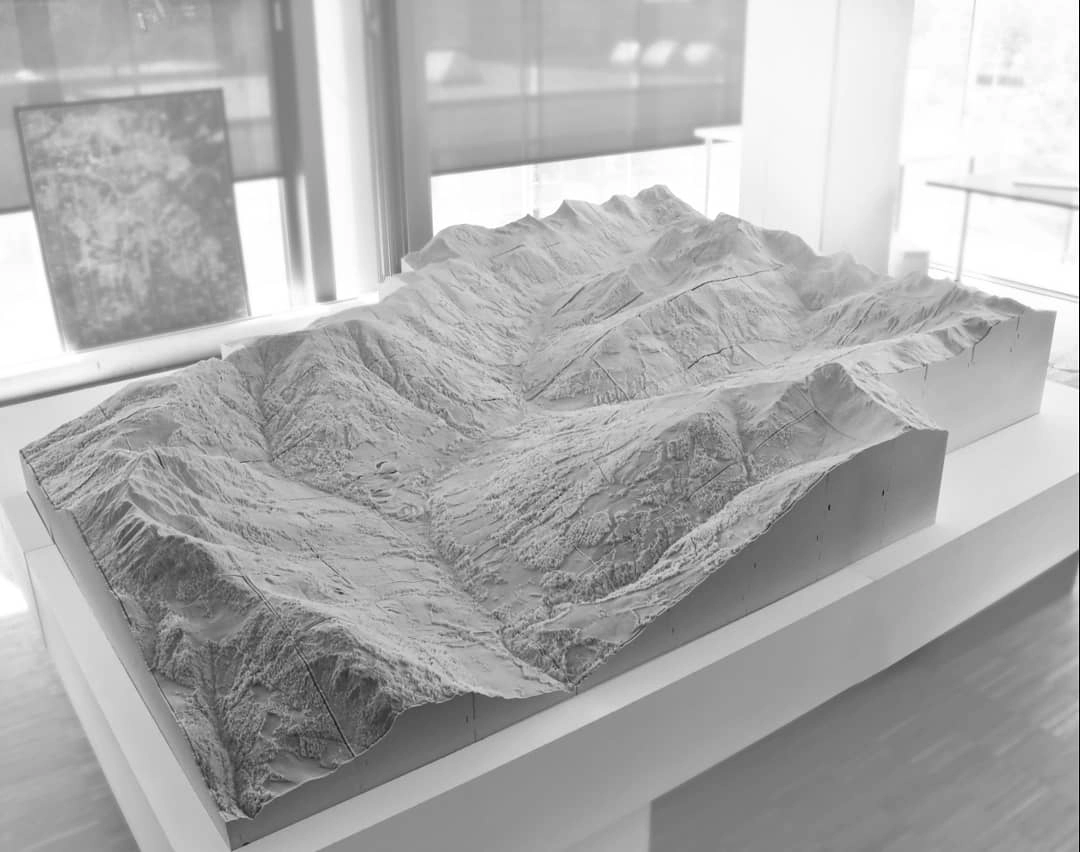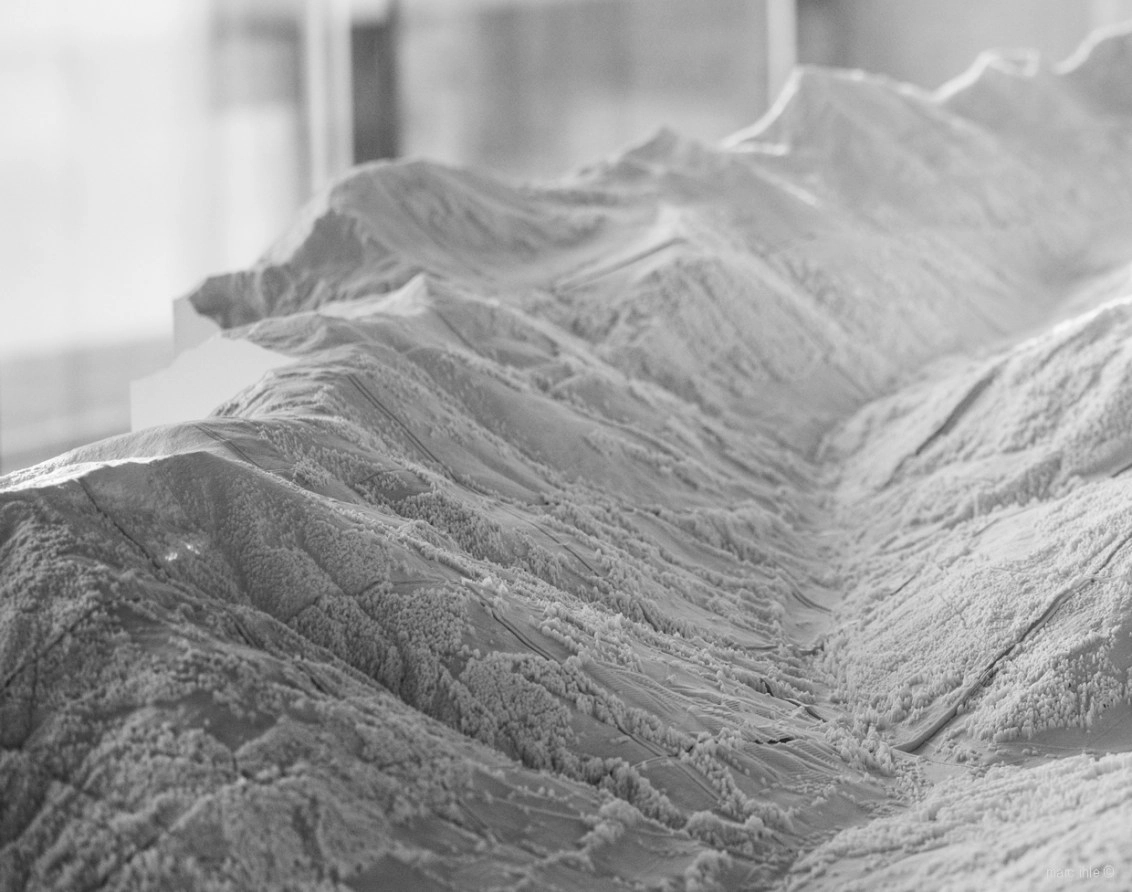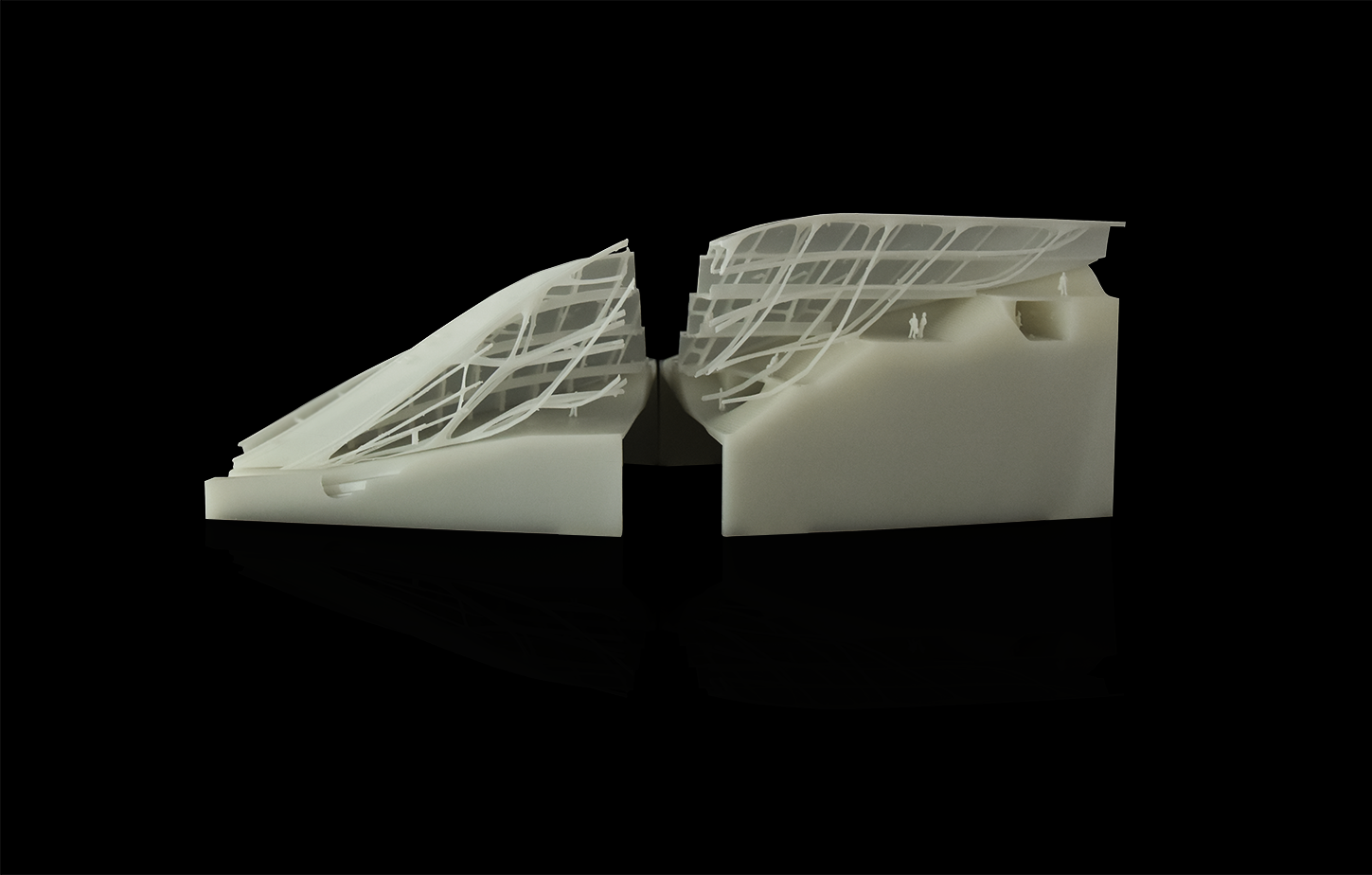ALPINE BIOFACTORY
|2016|
The centralization of vegetable/fruit-cultivation is a contemporary
phenomenon, which can be classified as problematic not only for the
environment, but also for smaller farmers. Vast “greenhouse landscapes“,
like Almeria in Spain (360 km²), use mono cultures, which facilitate the
spreading of vermin and, therefore, the use/utilization of pesticides.
With the decentralization of agriculture and the use of multi cultures,
a pesticide-free food-supply can be ensured.
My proposal is a BioFactory, which combines multiple technologies to create
a highly productive system, which is less harmful for the environment. The
BioFactory integrates aquaponics, multi cultures, vertical farming, a biomass
plant and algae cultivation to create a closed ecosystem without any use
of pesticides.
The building itself is divided in three climatic zones and a research center.
The flow lines and the slope of the terrain are taken into consideration
during construction so as to minimize power consumption. The system obtains
water from the consisting streams, which is then collected in the fishtanks.
The produced fish waste is converted by bacteria into fertilizer, hence no
additional fertilizer will be needed. Subsequently, the fertilized water
flows through the pipe structure, which sluices the fruit/vegetables. The
biomass from the plants gets partly fed to the fish whereas the rest is delivered
to a biomass plant, which produces electricity and heat for the BioFactory.
To cover the remaining nutritional requirements of the fish, algae are cultivated.
Eventually, the water flows back to the consisting stream system and completes
the cycle. Thus, the system can be used to cultivate a big variety of fruit/vegetables.
